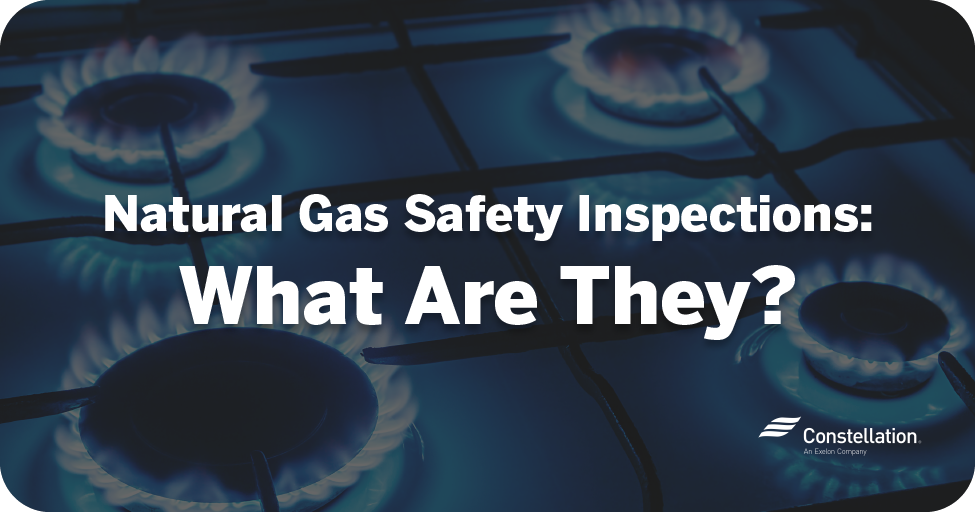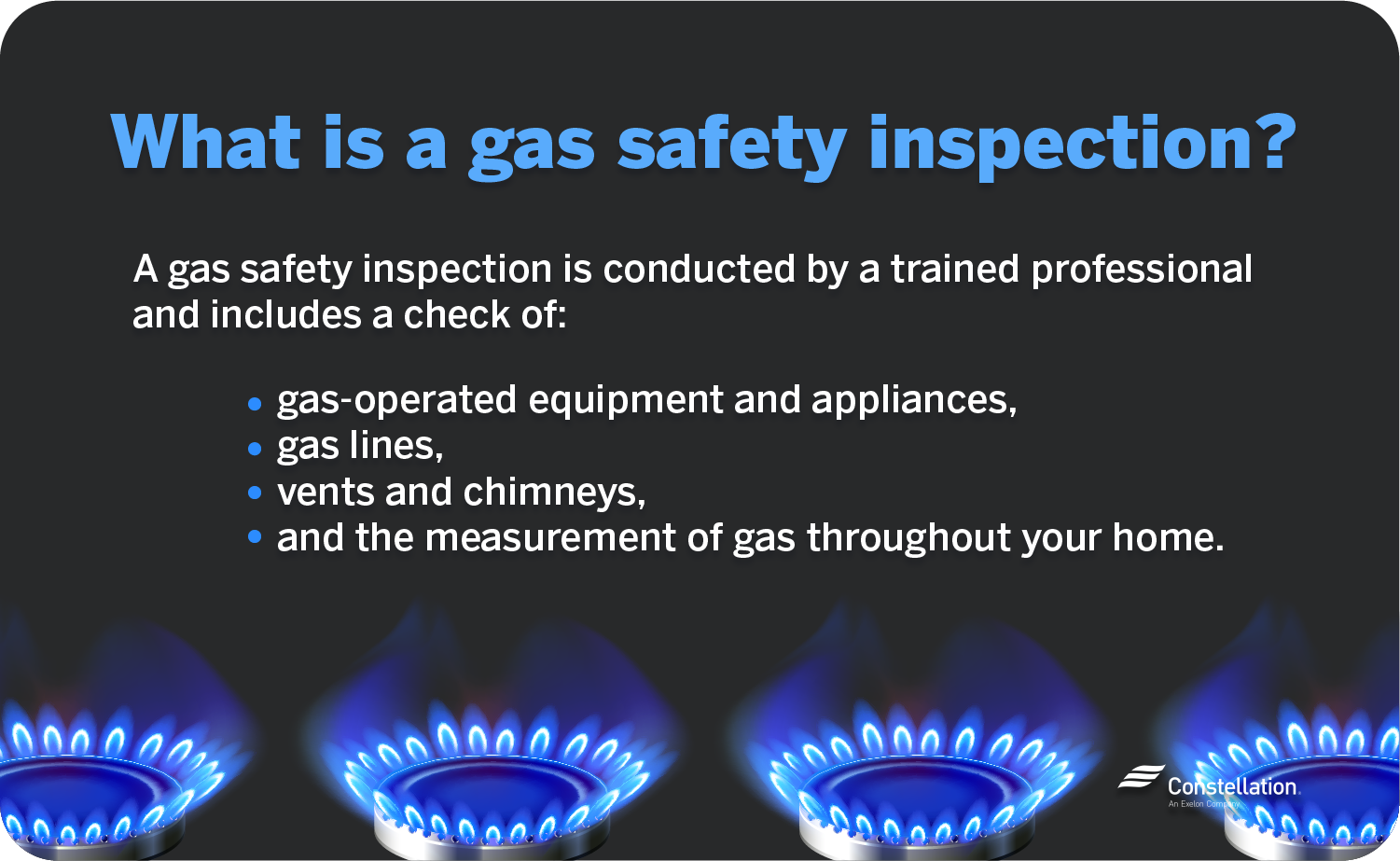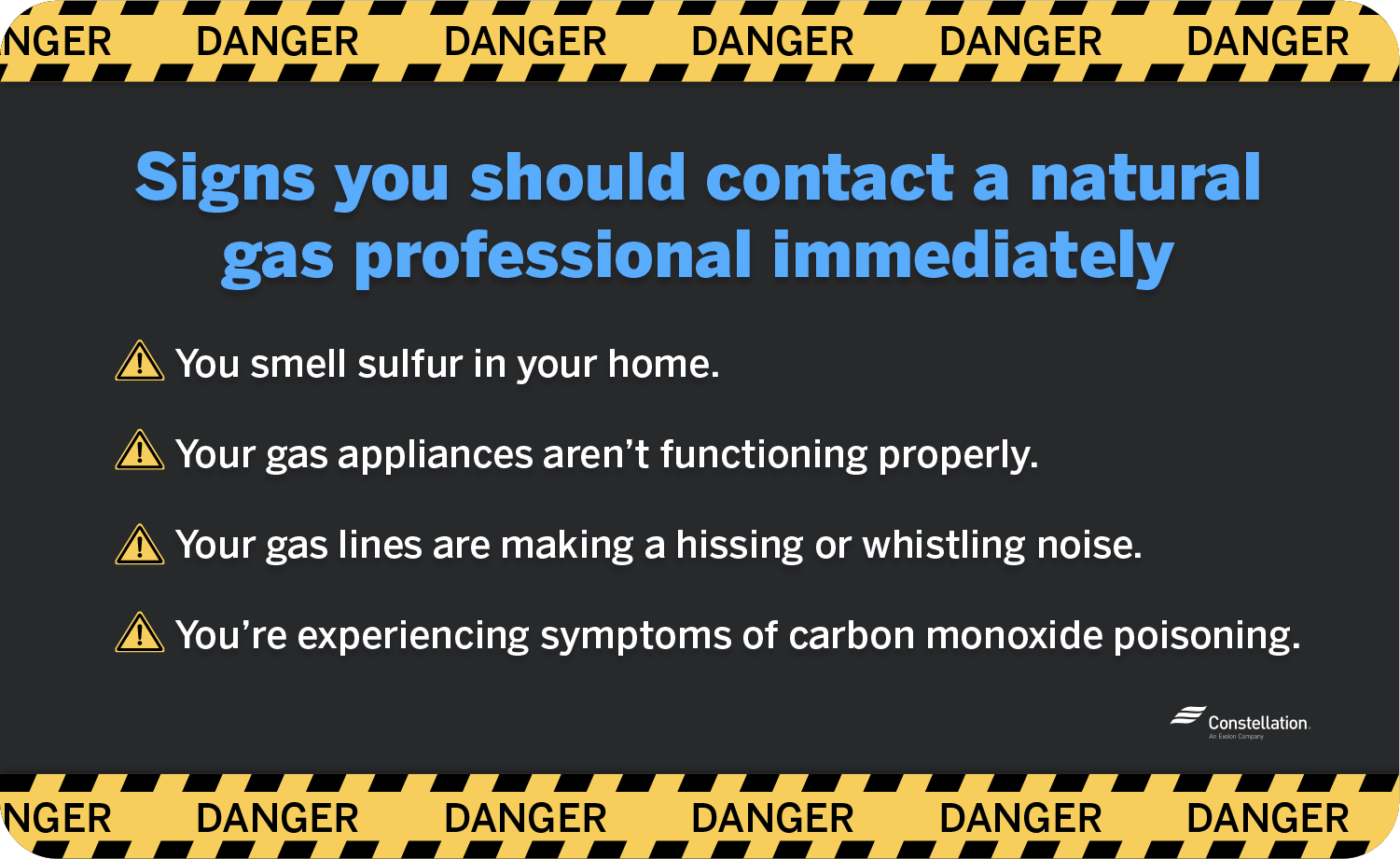
- Category:
Disaster Preparedness -
Last updated:
October 5, 2021
What is a Natural Gas Safety Inspection?
Gas furnaces and appliances are safe and energy-efficient. But it’s important to keep them running smoothly. To make sure you don’t encounter any problems, you should schedule a gas safety check with a professional once a year. Here, we’ll go through what you can expect during your annual inspection, the benefits of getting them done and how to detect a gas leak in your home.
What is a gas safety inspection?

A gas safety inspection is conducted by a trained professional and includes a check of gas-operated equipment and appliances, gas lines, vents and chimneys and the measurement of gas through and out of your home. Some municipalities require inspections. But even if they’re not mandatory in your area, regular gas safety checks are highly recommended if any of your appliances, particularly your furnace or boiler, run on natural gas or liquid petroleum gas (LPG).
An annual gas safety inspection is fast and easy — and could save you from a tragic accident. Although rare, these situations are serious enough to be a big reason to keep up with your regular maintenance. For instance, if you have an improperly fitted or maintained appliance, or if there are blockages or leaks in the system, poisonous carbon monoxide could potentially leak into your home. And if there’s a leak in the lines, you could be at risk for an explosion.
How often should I get a gas safety check?
Some places require gas safety checks every two or three years, but consider making them an annual habit. A gas company inspection at the start of cold weather season ensures that your systems will give you trouble-free performance. And if you do find an issue, annual inspections will likely find it early, when solving the problem is usually easier and less expensive.
The importance of annual gas safety inspections
Although gas safety issues are rare, the consequences can be dire for your property, health and even your life. Plus, regular inspections and maintenance can save you money, making sure you get the most out of every therm of natural gas. An annual gas safety check has major benefits:
- Ensure your equipment is running efficiently. A gas safety check will uncover clogs, blockages, leaks and worn parts. Cleaning and replacing these will help your equipment run better, which is more energy-efficient and could extend the life of your appliances.
- Prevent carbon monoxide from entering your home. Carbon monoxide that enters your home is a dangerous, and possibly even deadly, health threat. A gas safety inspection will prevent potential problems.
- Find issues before they get worse. A quick fix is better than a big, expensive repair.
What does a gas safety inspection include?
A comprehensive gas safety check will include all systems and appliances that run on gas. How extensive the gas safety inspection is will depend on what’s in your home. Typical steps include the following:
- Checking the operating pressure of your appliances
- Ensuring that your appliances are burning gas correctly
- Conducting a gas furnace safety inspection
- Measuring the pressure of the flow of gas through the lines
- Examining flues, pipes and chimneys for any potential obstructions
- Completing a gas leak safety inspection
- Assessing the safety devices on your appliances
- Ensuring that harmful gases are being properly vented from your home
Signs you should contact a professional for immediate assistance
Conducting thorough gas safety checks requires specialized knowledge and equipment. Also, learning how to do a gas safety check requires training and experience. It’s not something you can do yourself. But you can keep your system running well by following some natural gas safety tips.
Getting a gas safety inspection once a year is usually enough, but in some instances — such as after a natural disaster, like a hurricane — you may want to call a professional for a service appointment. If you think you might have a problem, don’t delay in calling your local utility.
Here are some warning signs that should lead to an immediate call for help:

1. You smell sulfur in your home.
Natural gas has no color or odor. For safety reasons, your provider adds a sulfur smell — often associated with rotten eggs — so that you’ll notice leaks right away. If you smell rotten eggs, you may have a leak. Check to make sure you haven’t left a stove burner partially on. Turn off the lights and anything electrical and quickly leave the area before calling for help.
2. Your gas appliances aren’t functioning properly.
When you turn on your stove, is the flame weak and yellow instead of steady blue? Is the pilot light constantly going out? Do you notice dark-colored stains around appliances? These are all signs that you may have an improper connection or other problem with your gas system.
3. There’s condensation building up on your windows.
You may have a gas leak if you notice condensation on your windows or around appliances. Exhaust gas may not be venting properly. The moisture in the exhaust vapor can condense on cold surfaces, like your window. The danger is that the carbon monoxide fumes in that vapor don’t condense out. They can build up to potentially dangerous levels.
4. Your gas lines are making a hissing or whistling noise.
If you don’t see or smell a gas leak, you might hear it instead. A leak in your gas lines or in connections to appliances may generate a hissing or whistling sound. If that happens, leave the area as quickly as possible, doing your best not to create any sparks as you go.
Consider opening windows to vent fumes. Don’t use your cell phone until you’re out of your house. Then call for immediate help. This is a highly dangerous situation, so don’t delay a second.
5. You’re experiencing symptoms of carbon monoxide poisoning.
Carbon monoxide is called the silent killer. You can’t see it or smell it. Leaks can be slow, so symptoms may not be immediately obvious. For these reasons, a carbon monoxide detector or smart smoke detector can be a lifesaver.
If you do notice unexplained headaches, feelings of nausea or dizziness —especially dizziness combined with difficulty breathing — don’t ignore them. Leave your home and get outside as soon as possible. Ignoring these signs can be deadly. If carbon monoxide builds up to a high enough level, you could pass out. And then you won’t be able to help yourself. Get yourself, family and pets out of the house and contact your local utility to do an inspection.
Regular gas safety checks are absolutely worth it. And inspections may be included in your natural gas plan. Problems are rare, but their impacts can be severe.
Make gas safety inspections something you do every year around the same time and follow these natural gas safety tips all year long. You’ll save energy, avoid inconvenient breakdowns and prevent a major accident in your home.




